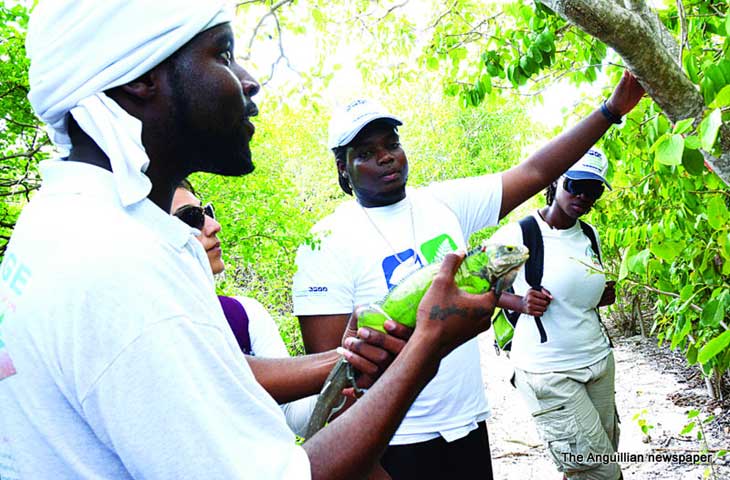Endangered iguanas successfully introduced to new home by Roehampton Zoologists
- Tuesday, March 1, 2016
Dr Louise Soanes, from the Department of Life Sciences, has been working with the Anguillan National Trust (ANT) on a project to introduce the Lesser Antillean Iguana to a new home, which has now been completed. 12 iguanas, of the endangered Iguana Delicatissima species, have been successfully settled on the island of Prickly Pear East, near Anguilla.

Due to the iguanas facing diminishing numbers, with the species having recently disappeared from two island territories completely and remaining on only six islands in the Caribbean, including Anguilla, the ANT embarked upon this project to protect the local species, and sought help from international experts.
The colony of iguanas have been fitted with radio transmitters, so that the Roehampton researchers, in collaboration with the ANT, Durrell Wildlife Conservation Trust and Fauna & Flora International, can keep track of how the animals are getting along in their new home.
Dr Soanes said, “Our work has made an important contribution to the conservation of this species, and will aid future projects protecting endangered species in the Caribbean. Supporting and advising the Anguillan National Trust in this vital project has resulted in valuable international collaboration.”
The project began with the need to identify a suitable location for the new colony, with the uninhabited coral reef sand bank (known as a cay) of Prickly Pear East being chosen as one of the new homes. It has also involved a variety of stakeholders, including many local people, and has raised awareness of the diversity of indigenous wildlife in the area.
For the next two and a half months the iguanas will be monitored before the transmitters are removed, if they have settled well in their new habitat. The Lesser Antillean Iguana has been losing habitat largely due to the invasive species of Green Iguana, which competes with it for food, and which also mates with it, causing the offspring to be a different species.
Find out more about how you can help endangered animals by studying Zoology at Roehampton.
